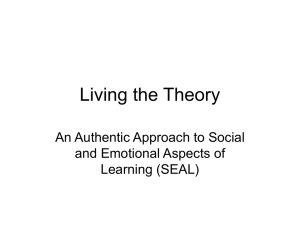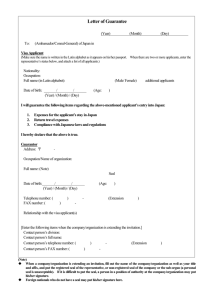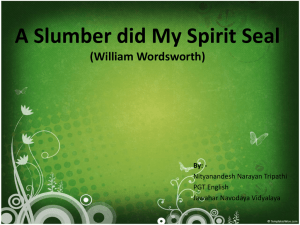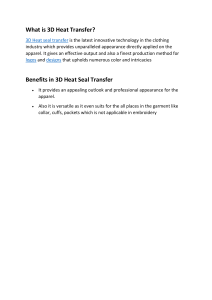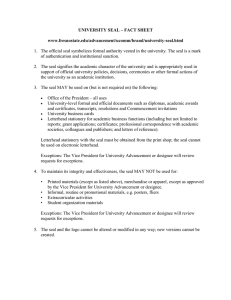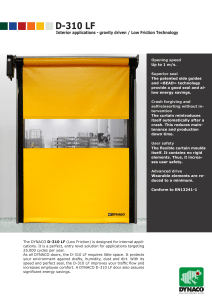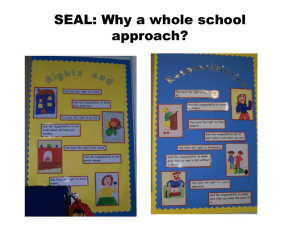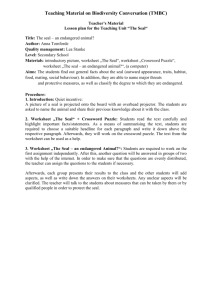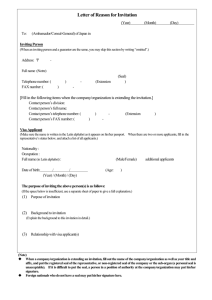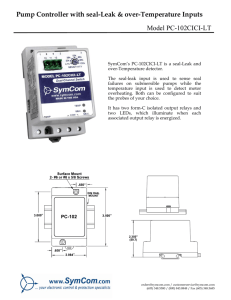Social and Emotional Aspects of Learning
advertisement
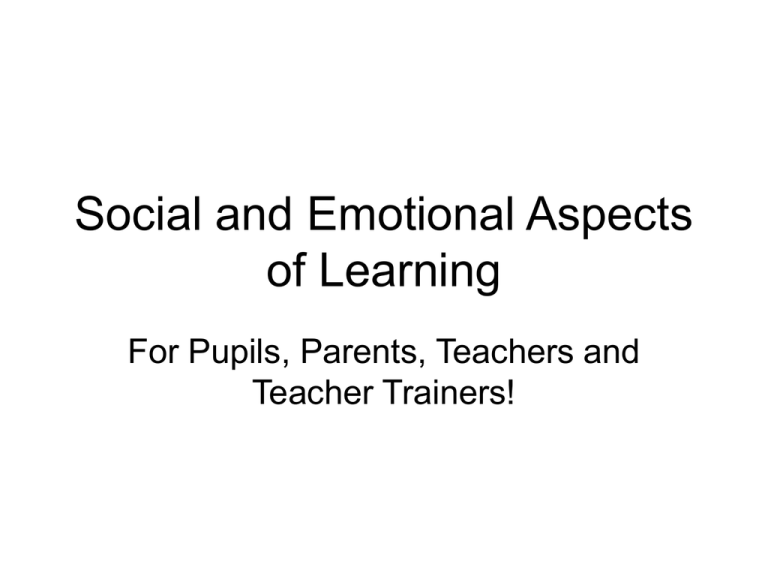
Social and Emotional Aspects of Learning For Pupils, Parents, Teachers and Teacher Trainers! What is SEAL? • Social and Emotional Aspects of Learning – non statutory element of primary and secondary curriculum from 2007 • Underpins learning in all other curriculum areas • Primary and Secondary Set • http://nationalstrategies.standards.dcsf.go v.uk/primary/publications/banda/seal Skills Based • • • • • Self awareness Managing feelings Motivation Empathy Social skills What makes up each of these areas? Carousel activity. This project • • • • • TDA funded Across GONW Supported by National Strategies 100 teachers / school staff Evaluated baseline + • ‘Practical SEAL skills for school leadership’ Adult Learning Approach • • • • • • Experiential adult learning Knowledge, skills and understanding NLP techniques to embed TA and EI to develop self awareness Extensive support materials Self Directed project to embed learning (Boyatzis 1998) / Practitioner Action Research (McNiff 1988) • Process is the content Premises • 4 levels of learning: Individual, Inter personal, Pedagogical, and Organisational • Achieved through ‘Living the Theory’ (Whitehead 1989) and Modelling (Bandler and Grindler 1979) • Supported learning to ensure transfer of learning • Desired output – cultural change in schools at all levels Lets try some out… DRAMA TRIANGLE Rescuer Persecutor Victim WINNERS TRIANGLE Vulnerable not victim Responsive not rescuer Potent not persecutor EGO STATES Parent Adult Child EGO STATES Critical Parent Nurturing Parent Adult Adapted Child Free Child Complementary Transactions Crossed Transactions Ulterior Transactions How are these 3 models useful to you? The Evaluation Findings RESOURCES ACTIVITIES DISCUSSION CONCEPT INSIGHT UNDERSTANDING PERCEIVED RELEVANCE APPLICATION Supporting Evidence • “through exceptionally clear resources and experiential learning it succeeded in putting ‘theory into context’. It guided SEAL leaders towards understanding how some theories drawn from transactional analysis can be a practical tool for teachers seeking to understand SEAL and use it to shape and change the motivation, behaviour, emotions of themselves, their pupils and their school teams” Challenges • Accreditation completion was low • Participants reported wanting a longer overall timescale • Acquiring + 6 months evaluation data • Attendance at cluster meetings • Intransient views of a minority of staff towards SEAL Conclusions • “Despite the challenges, the programme was overwhelmingly rated highly effective and inspiring, and exceptionally well designed and delivered, by almost every participant, and favourably compared with all other courses. The conversion of ‘concept to context’ was an outstanding feature”. • • • • • • • • • Kaz Stuart University of Cumbria SEPE Rydal road Ambleside Cumbria LA22 9BB 015394 30250 / 07950 039206 Karen.stuart@cumbria.ac.uk
